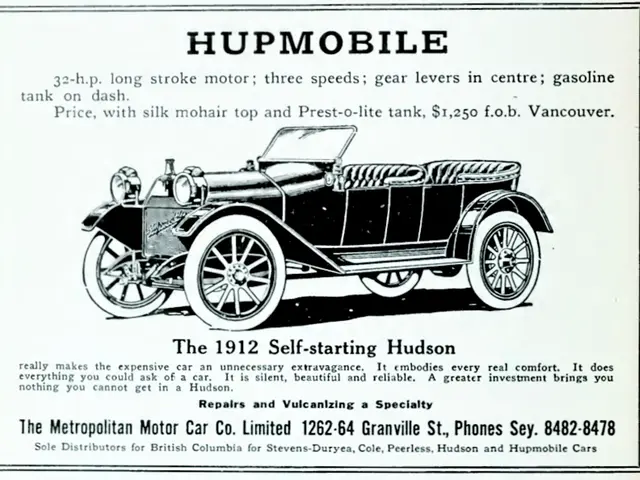Chaos on Motorways: Inspections Reveal Overcrowding of Truck Parking Spaces on German Motorways
- *
Criticism mounts over insufficient truck parking spaces on highways, causing overcrowding and safety concerns. - Criticism levels on congested parking areas along highways by the organization
A lack of thousands of truck parking spaces on highways in Germany is causing considerable trouble for traffic, as per an examination by the Auto Club Europa (ACE) that raises serious concerns about safety on motorways. Between April 15 and June 3, the transport club checked the number of trucks parked on highways each day after 20:30. The situation on the southern Berlin Ring (A10) and the A24 in Mecklenburg-Vorpommern was particularly risky due to incorrectly parked trucks.
In Saxony, the Rastanlage Oberlausitz Nord on the A4 near Bautzen stood out with an occupancy rate of 165%, while the Nothnitzgrund Süd and Nord rest areas on the A17 near Dresden were filled to more than twice their capacity, with an occupancy rate of 100% and 120%, respectively.
"By 16, 17 o'clock, the battle for parking spaces begins," says Dirk Engelhardt, the board spokesman for the Federal Association of Goods Transport, Logistics, and Disposal (BGL). The federal government has plans to ease the bottlenecks, stating that the number of parking spaces has been steadily increasing since 2018.
ACE: Massive Overcrowding at Rest Areas in Eastern Germany
Although the ACE's truck count is a snapshot, it revealed an extreme overcrowding at 31 inspected rest areas in eastern Germany, according to the transport club. A total of 2,168 parked trucks were counted, with only 1,412 spaces available, resulting in an occupancy rate of approximately 50%. Dangerous traffic conditions, especially during nighttime with limited visibility, were found on 21 of the 31 inspected rest areas. Trucks were typically parked in the entrance and exit lanes, and some were parked on spaces intended for cars. However, there were no instances of trucks being parked on the hard shoulder of the highway.
Association: Parking Shortage Must Become a Priority Issue in the Ministry
According to a survey by the Federal Highway Research Institute in 2023, there is a nationwide shortage of more than 19,500 regular truck parking spaces on highways, with more than 102,000 trucks parked overnight and only 82,490 parking spaces available. The Federal Association of Goods Transport, Logistics, and Disposal considers the shortage to be greater, estimating around 40,000 missing parking spaces, and calls for it to become a priority issue in the Ministry of Transport.
According to the Federal Ministry of Transport, around 3,000 parking spaces have been added since 2018, and real-time telemetry parking procedures are being introduced to optimize the use of parking areas.
Deep Dive
- Expansion Efforts: Each year, only around 1,500 new truck parking spaces are added. This rate has slowed due to legal and logistical challenges, making the expansion process more difficult[1].
- Potential Solutions: Industry experts and associations recommend placing a greater emphasis on developing off-highway parking facilities ("autohofs" outside highways) rather than focusing solely on highway rest areas. These off-highway parking lots are estimated to be up to €50,000 cheaper per space to develop[1].
Globally and across Europe, the truck parking shortage is not unique to Germany but is a widespread challenge affecting long-haul trucking. The United States, for example, has public rest areas that provide only 13% of truck parking spaces, with the majority located at commercial truck stops[4]. Similar to Germany, there is a push for more public-private partnerships and innovative solutions to address the shortage[4]. If present trends continue, it would take about 20 years to close the gap at the current rate of parking lot creation[1].
- The extensive overcrowding at truck rest areas, revealed by the Auto Club Europa's examination, is not just an issue in Germany but is a widespread challenge affecting long-haul transportation across Europe, as highlighted by the shortage of parking spaces in countries like the United States.
- To alleviate the truck parking shortage, industry experts and associations suggest prioritizing the development of off-highway parking facilities, known as "autohofs," outside highways, which are estimated to be significantly cheaper to construct compared to on-highway rest areas, potentially reducing the cost per space by up to €50,000.








